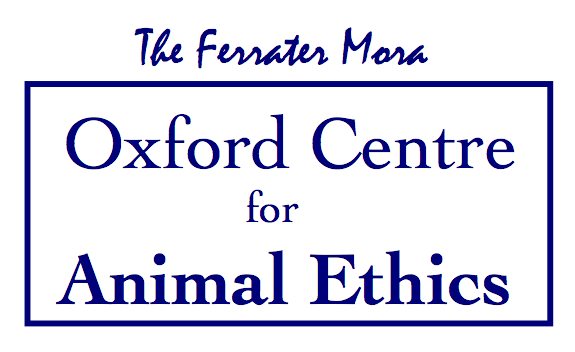Am I not supposed to say Amok?
Sweet babyjesus whats going on?
Animal ethicists call for new terminology
 Christopher Furlong/Getty Images
Christopher Furlong/Getty Images
It's OK to love your differentiated being but don't dare call it a “pet.”
Adrian Humphreys, National Post · May 10, 2011 | Last Updated: May 10, 2011 10:56 AM ET
Animal ethicists are calling for a new vocabulary about animals, shunning words such as “pets,” “wildlife,” and “vermin” as derogatory and even suggesting “animal” is a “term of abuse.”
Common language on fauna betrays an “anthropocentric bias” and impedes an understanding of our interaction with the non-human species sharing the planet, argue the editors of the first academic journal dedicated to animal ethics in their debut issue.
Instead of “pet,” the Journal of Animal Ethics suggests “companion animal.” Rather than “wildlife,” they are to be called “free-living.” “Differentiated beings” or “non-human animals” is preferred to simply “animals.”
Words such as “vermin,” “beasts” and “critters” are stricken completely, along with similes such as “sly as a fox,” “drunk as a skunk,” “eat like a pig,” “slippery as an eel,” “breeding like rabbits” and “stubborn as a mule.”
“We will not be able to think clearly unless we discipline ourselves to use more impartial nouns and adjectives in our exploration of animals and our moral relations with them,” the editors write.
The argument has led to a public outcry that political correctness has run amuck, but the journal’s co-editor insisted terminology has the power to change how people think and act.
“The fact that some have reacted so furiously suggests that our language is much more revealing of our attitudes than many suppose. We have started an important debate,” said Andrew Linzey in an interview. “We were trying to help people see the connection between what we think and say about animals and how they are treated.”
Linguistics professor Anthony Aristar of Eastern Michigan University said that argument is hogwash.
‘‘You have to ask yourself who exactly is being offended in this case,’’ Prof. Aristar told the Pittsburgh Tribune Review.
“There’s no good evidence that changing the words people use will change the way they treat animals. For 99% of the population with pets, it’s not going to change their behaviour one iota.”
The journal’s inaugural issue was published last month. Its first article is a commentary condeming Canada’s seal hunt, saying that there is no moral or ethical difference between the hunt and clubbing golden retriever puppies frollicking in a public park.
The journal’s editorial on language, meant primarily as a guide to would-be contributors, decries the “language of past thought” as denigrating and degrading to animals.
“Despite its prevalence, ‘pets’ is surely a derogatory term with respect to both the animals concerned and their human caregivers. Again, the word ‘owners,’ though technically correct in law, harks back to a previous age when animals were regarded as just that: property, machines or things to use without moral constraint,” the editorial says.
Using “wild animals” or “wildlife” implies an “uncivilized, unrestrained, barbarous existence,” that causes prejudice, the editors argue.
Similarly, the terms “laboratory animals” and “farm animals” imply a subspecies of animals that are less worthy of consideration.
The term “culling” denotes acceptable killing because of a quality deemed negative as do the words “pests” or “vermin.” The journal notes that rats, for instance, are maintained as companion animals by some people and exterminated by others.
The use of the word “animal” in the journal’s title is acceptable, Prof. Linzey said, because “animal ethics” has become the established term within academia for the field of study.
Specific pronouns of “he” or “she” should also be used for animals rather than “it” because: “The odd notion that animals are only a species and not individuals should not be perpetuated in our language.”
It will all lead to a better understanding, said Prof. Linzey, who is on the faculty of theology at University of Oxford and director of the Oxford Centre for Animal Ethics.
“To understand why we treat animals in the way we do, we need to explore the negative ideas we have about animals... and our negative ideas are expressed in pejorative language: brutes, beasts, bestial, dumb brutes,” he said.
ahumphreys@nationalpost.com
It's OK to love your differentiated being but don't dare call it a “pet.”
Adrian Humphreys, National Post · May 10, 2011 | Last Updated: May 10, 2011 10:56 AM ET
Animal ethicists are calling for a new vocabulary about animals, shunning words such as “pets,” “wildlife,” and “vermin” as derogatory and even suggesting “animal” is a “term of abuse.”
Common language on fauna betrays an “anthropocentric bias” and impedes an understanding of our interaction with the non-human species sharing the planet, argue the editors of the first academic journal dedicated to animal ethics in their debut issue.
Instead of “pet,” the Journal of Animal Ethics suggests “companion animal.” Rather than “wildlife,” they are to be called “free-living.” “Differentiated beings” or “non-human animals” is preferred to simply “animals.”
Words such as “vermin,” “beasts” and “critters” are stricken completely, along with similes such as “sly as a fox,” “drunk as a skunk,” “eat like a pig,” “slippery as an eel,” “breeding like rabbits” and “stubborn as a mule.”
“We will not be able to think clearly unless we discipline ourselves to use more impartial nouns and adjectives in our exploration of animals and our moral relations with them,” the editors write.
The argument has led to a public outcry that political correctness has run amuck, but the journal’s co-editor insisted terminology has the power to change how people think and act.
“The fact that some have reacted so furiously suggests that our language is much more revealing of our attitudes than many suppose. We have started an important debate,” said Andrew Linzey in an interview. “We were trying to help people see the connection between what we think and say about animals and how they are treated.”
Linguistics professor Anthony Aristar of Eastern Michigan University said that argument is hogwash.
‘‘You have to ask yourself who exactly is being offended in this case,’’ Prof. Aristar told the Pittsburgh Tribune Review.
“There’s no good evidence that changing the words people use will change the way they treat animals. For 99% of the population with pets, it’s not going to change their behaviour one iota.”
The journal’s inaugural issue was published last month. Its first article is a commentary condeming Canada’s seal hunt, saying that there is no moral or ethical difference between the hunt and clubbing golden retriever puppies frollicking in a public park.
The journal’s editorial on language, meant primarily as a guide to would-be contributors, decries the “language of past thought” as denigrating and degrading to animals.
“Despite its prevalence, ‘pets’ is surely a derogatory term with respect to both the animals concerned and their human caregivers. Again, the word ‘owners,’ though technically correct in law, harks back to a previous age when animals were regarded as just that: property, machines or things to use without moral constraint,” the editorial says.
Using “wild animals” or “wildlife” implies an “uncivilized, unrestrained, barbarous existence,” that causes prejudice, the editors argue.
Similarly, the terms “laboratory animals” and “farm animals” imply a subspecies of animals that are less worthy of consideration.
The term “culling” denotes acceptable killing because of a quality deemed negative as do the words “pests” or “vermin.” The journal notes that rats, for instance, are maintained as companion animals by some people and exterminated by others.
The use of the word “animal” in the journal’s title is acceptable, Prof. Linzey said, because “animal ethics” has become the established term within academia for the field of study.
Specific pronouns of “he” or “she” should also be used for animals rather than “it” because: “The odd notion that animals are only a species and not individuals should not be perpetuated in our language.”
It will all lead to a better understanding, said Prof. Linzey, who is on the faculty of theology at University of Oxford and director of the Oxford Centre for Animal Ethics.
“To understand why we treat animals in the way we do, we need to explore the negative ideas we have about animals... and our negative ideas are expressed in pejorative language: brutes, beasts, bestial, dumb brutes,” he said.
ahumphreys@nationalpost.com
Sweet babyjesus whats going on?






Comment